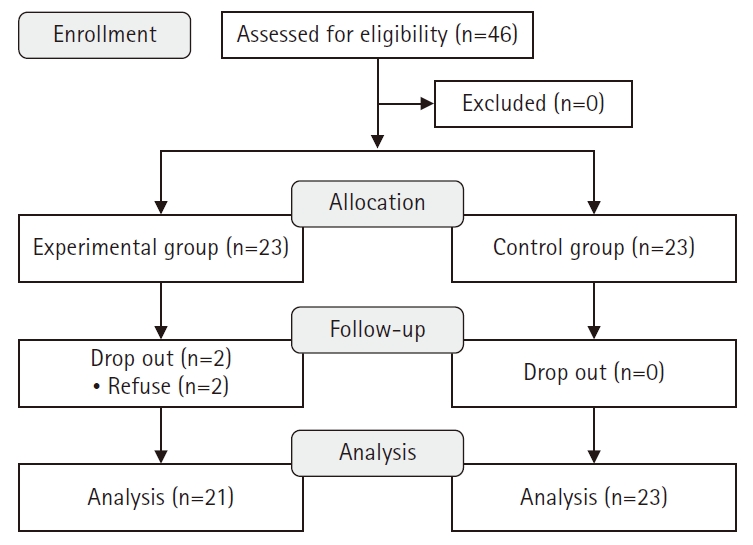-
Effects of an integrated healthcare program for postpartum women: a quasi-experimental study
-
Eun Suk Hwang, Ju-Hee Nho
-
J Korean Acad Nurs 2025;55(4):506-518. Published online November 7, 2025
-
DOI: https://doi.org/10.4040/jkan.25076
-
-
 Abstract Abstract
 PDF PDF ePub ePub
- Purpose
This study aimed to develop and evaluate an integrated healthcare program for postpartum mothers based on Cox’s interaction model of client health behavior.
Methods
A non-equivalent control group pretest-posttest design was used. The integrated healthcare program was administered 6 times over 2 weeks to postpartum mothers in the experimental group (n=21), while the control group (n=23) received standard care. Data were collected from June 3 to July 15, 2024, through structured questionnaires measuring postpartum fatigue, depression, marital intimacy, and mother-infant attachment. Analyses were conducted using IBM SPSS ver. 23.0.
Results
The experimental group showed significantly lower postpartum fatigue (Z=–2.00, p=.023), a significantly proportion of improvement in postpartum depression (χ2=10.32, p=.012), and a significant increase in mother-infant attachment (t=1.70, p=.048) compared to the control group. However, there was no significant difference in marital intimacy between groups (Z=–0.46, p=.326).
Conclusion
These results suggest that an integrated health management program including physical health, psychological stability, and relational support can be used as an effective nursing intervention to promote health in postpartum mothers. Therefore, additional research is warranted that expands and applies integrated programs for postpartum mothers in various environments in postpartum care centers and communities.
|




